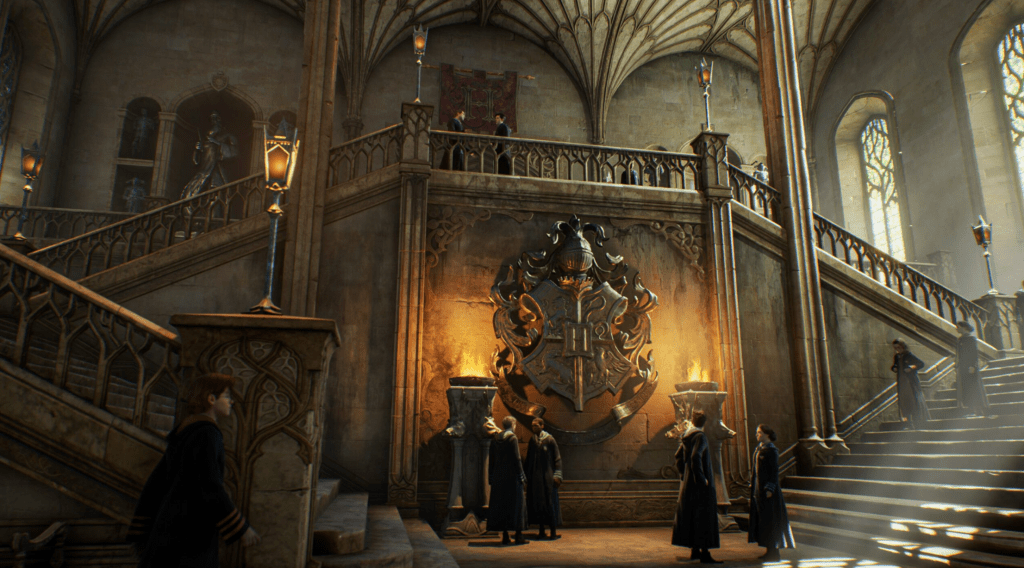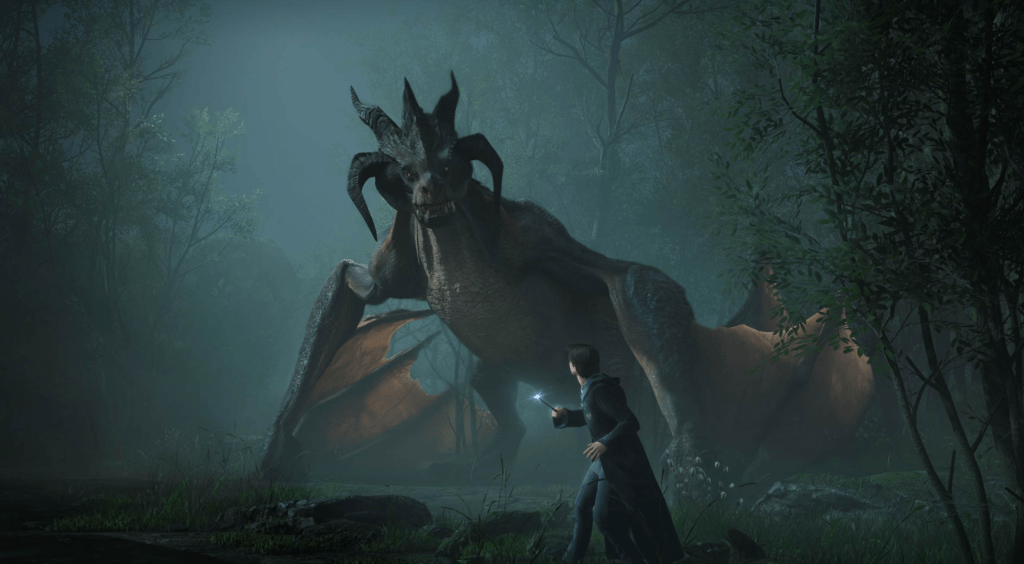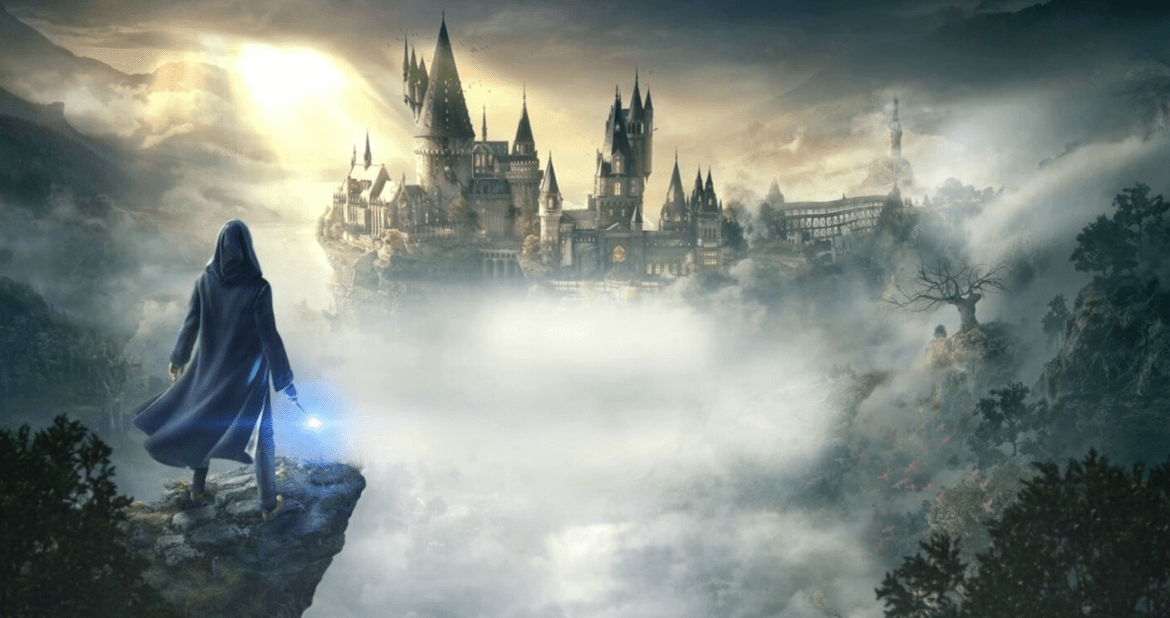I must confess, I’m not a die-hard fan of the Harry Potter series. I used to be, but my enthusiasm dwindled after the second movie, despite being a fan in my younger years. However, the allure of this wizarding world has always left me somewhat curious. A curiosity that yearned for a decent video game, detached enough from the canonical tales to tell a brand-new story. Hogwarts Legacy seemed, on the surface, to be the game I had long awaited. The question remained: did it live up to expectations?
When mentioning this game, or the entire franchise for that matter, it naturally stirs up some controversy. It’s no secret that the series’ creator has made some contentious statements and actions, leading many (myself included) to believe that these might cause harm to members of the transgender community, either through the actions of others or directly as a consequence of some of these actions. This has put many websites in a delicate position, involving discussions on game reporting, ranging from outright bans to reporting without mentioning the controversy. As a relatively small site in the grand scheme of things, our aim is to publish game coverage when possible and hope people understand that reading critical perspectives on a game does not equate to endorsing the abhorrent views that are increasingly prevalent in our society. We received a copy of the game from Warner Bros., so we’ll be donating the cost of a full retail copy, along with all monetization related to it, to Mermaids – a UK charity supporting transgender teenagers and their families. Trans rights are human rights.

Now, Hogwarts Legacy is set in the 19th century at the magical school of Hogwarts. Your character enrolls as a fifth-year student, an unusual circumstance, and clearly, something is a bit out of the ordinary. They possess the ability to see traces of “ancient magic” that others do not, setting you off on an adventure with your professor, Fig, unraveling a plot that threatens the very fabric of the wizarding society. Throughout the narrative, there’s a plethora of activities to engage in. You build your character, try to navigate the challenges of being a student in a new place, and deal with the aforementioned “big threat.” You get to choose which house you’re sorted into and are immediately tasked with quickly acquainting yourself with your studies. Conveniently, this aligns well with gaining access to new spells and abilities for more in-depth exploration of the surrounding landscapes and the world at large. Once you acquire the ability to use a magical broomstick, exploration becomes second nature, coexisting with a robust fast-travel system around the open world. Stepping into Hogsmeade in the game for the first time, I reminisced about something lost in the sands of time from my childhood. Honeydukes and Fizzing Whisbees. Ollivanders and the wand selection. It’s a world with much to explore and immerse yourself in, where I could easily spend hours strolling and absorbing everything.
Of course, statements about immersion and other general RPG elements can easily be plucked from this review and unhesitatingly dropped into most others. Mechanically speaking, it doesn’t delve as deep as titles like Fallout or The Elder Scrolls series. It serves more as an introduction to many RPG elements, and I find that to be adequate for this game, considering its target audience might be slightly younger than those titles. Personally, I appreciate this. I’m not one for sprawling, chaotic open-world quests, but I do enjoy the idea of character progression and the choices you make about the path you take. That being said, Hogwarts Legacy was engaging enough to keep my attention without losing me amid 50 different concurrent side quests.

Regarding combat in the game, the spell-casting system is your primary focus. While you can summon some carnivorous plants to assist you, most of your time is spent switching between four sets of spells, stringing them together to defeat your enemies. As you progress, you eventually gain about 24 different spells, forcing you to figure out the complementary relationships between them for effective switching. Are you attempting to power through enemies with sheer force, or are you stopping them before dealing out substantial damage? Granted, you encounter unforgiving spells in the late game, but to a large extent, it’s about balancing damage and ease of use. When things get a bit chaotic, I did find it somewhat cumbersome, though some of that might be attributed to my poor choices in layout and a “shoot first, ask questions later” approach.
Speaking of the most impressive parts of the game, it’s the architecture, as the title suggests. The scale and scope of Hogwarts itself are genuinely incredible, with hidden sections, shifting walls, and familiar areas converging to create a truly wondrous feeling. Admittedly, there were moments of slight emptiness while traversing the hallways, but segments involving classrooms and more students make it feel as rich as any video game environment should. The castle itself feels like a unique character, with many stories to tell and plenty of hints to give.
From a technical standpoint, the game performs quite well. There are several modes to allow you to play the game the way you want (we hope to have a performance analysis soon), and even in performance mode, the vast majority of the game looks remarkably crisp. Loading between various areas of the castle is cleverly hidden behind closed doors, though sometimes these doors do manifest a bit of a vortex before fully loading. This is a technical aspect that I don’t find problematic on the PS5, but overall, it’s not something worth complaining about. Framerates seem consistent for the most part, and the rich magical effects make things appear impressive overall, with enchanting visuals swirling and omnipresent, giving the impression that magic is so commonplace in this mysterious world.
All in all, Hogwarts Legacy is a remarkably well-crafted game. As someone who doesn’t feel much affinity for the wizarding world series, I found myself genuinely enjoying it. It’s an RPG that doesn’t feel overly cumbersome or unnecessarily lengthy, and there’s enough content to satisfy most players, whether they’re Potterheads or not.



Leave a Reply